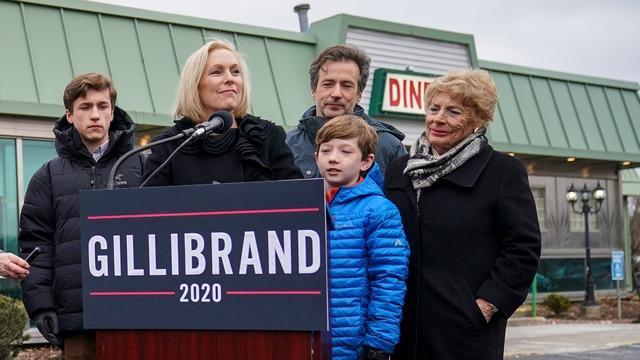Finding a Balance Between Purity Politics and Pragmatism
“Democrats never agree on anything; that’s why they’re Democrats. If they agreed with each other, they’d be Republicans.” – Will Rogers
January 23, 2019
It’s only 2019, but with the way media outlets have begun breathlessly reporting on the presidential prospects of various Democratic stars, you’d be forgiven for believing that it’s 2020 already. With this horse race coverage, of course, come debates regarding the fitness of the potential candidates, especially since the Democratic primary seems poised to be a wide-open race. Former Vice President Joe Biden’s substantial lead in current polls seems to be more the result of his name recognition and association with former President Barack Obama, whose legacy seems more appealing each day.
Debates over the ideal Democratic candidate for 2020 focus, as they have in the past, largely over the perceived schism between purity and pragmatic politics. Should Democrats strive to nominate the most progressive, ideologically “pure” candidate, or should they focus on a moderate who can unify a variety of different voting demographics—or are the two not necessarily mutually exclusive? The current Democratic field seems, in any case, to be wide-open and growing every day, so perhaps the last option—unifying purity and pragmatism—is more possible than ever.
DECLARED CANDIDATES
ELIZABETH WARREN
HELPED BY: Credentials as a progressive, champion of labor, name recognition
HURT BY: Accusations of falsifying Native American heritage
Out of the declared candidates, Senator Elizabeth Warren (D-MA) likely has the highest national profile. Her status as a progressive is unquestionable; throughout her tenure in the Senate, she’s continuously attacked the exploitation of workers by corporations and the lack of corporate accountability within our current economic system. Her introduction of the Accountable Capitalism Act last summer, which would increase government regulation of large corporations and create greater representation for workers on corporate boards, is a prime example of her interest in curtailing the power of big business.
Unfortunately, Warren has, for the past two years, been under attack by diverse groups ranging from Trump supporters to Native American rights groups due to her claims of Native American heritage. Warren’s release of a DNA report this October which detailed her heritage—she claims to be about 1/64th Native American—led to criticism of her conflation of race with cultural identity and was widely regarded as a clumsy and entirely preventable mistake. Warren has also been continuously derided by President Trump as “goofy” and “Pocahontas” (with the latter insult bearing undeniably racist undertones), and though she usually strives to give as good as she gets, it remains to be seen if her relative popularity will withstand the onslaught of criticism which inevitably comes with a run for the presidency.
KIRSTEN GILLIBRAND
HELPED BY: Progressive voting record, champion of women’s rights
HURT BY: Shadow of Al Franken
Throughout her tenure in the Senate, Kirsten Gillibrand (D-NY) has carved out a profile as a progressive and vehement defender of women’s rights. Gillibrand has actively campaigned and created legislation against sexual harassment and assault in the military. Additionally, she’s advocated for universal paid family leave annually for the past five years, backed Medicare-for-all, and defended Planned Parenthood and other clinics which provide critical health services for women.
Yet perhaps the biggest stumbling block for Gillibrand may come from her reputation as a strident advocate for women and survivors of sexual harassment and assault. Gillibrand was one of the foremost voices in calling for the resignation of former Senator Al Franken (D-Mn) after accounts of sexual harassment committed by the Senator emerged last year, and as a result, many prominent Democratic donors are reluctant to support her. Such donors believe that a thorough investigation of the accounts should have taken place before any calls to resign emerged and that Gillibrand effectively betrayed her fellow Democrats in pushing Franken out of the Senate so soon after the accusations emerged. Of course, whether such reluctance by these donors is justified is certainly debatable.
KAMALA HARRIS
HELPED BY: Progressive voting record, political flexibility
HURT BY: Record as California’s attorney general
Kamala Harris is exciting: the junior senator from California, she’s vehemently defended Planned Parenthood and pushed for the passage of the DREAM Act, which would provide young undocumented immigrants with a path to citizenship. Only elected in 2016, she has the opportunity to define herself with a remarkable degree of flexibility throughout the course of the campaign, which could help her among undecided voters.
Harris, however, now faces questions over actions she took while serving as California’s Attorney General; while she’s attempted to retroactively define herself as a “progressive prosecutor,” criticism of her prosecutorial record has emerged. Critics state that Harris was reluctant to overturn convictions even when proof of inmates’ innocence emerged and once opposed implementing standards which would regulate body cameras worn by police officers.
JULIAN CASTRO
HELPED BY: Wonkishness, youth
HURT BY: Low name recognition, relative lack of experience
Julian Castro was once seen as a rising star in the Democratic party—back when a Clinton administration seemed like the most likely outcome of the 2016 election, he was tapped to head a department in the new government. Formerly the mayor of San Antonio and the head of the Housing and Urban Development Department in the Obama administration, Castro has developed a reputation as a policy wonk, described by The New York Times in 2010 as “cerebral, serious, self-contained and highly efficient.”
Yet Castro’s name recognition remains low amongst most voters, and his experience is relatively lacking compared to that of other prospective candidates. Castro is also still largely a blank—no signature policy defines him, which could harm him in a field where most candidates have already established a recognizable profile.
JOHN DELANEY
HELPED BY: Starting his campaign early
HURT BY: Complete lack of name recognition
Oh, poor, sweet John Delaney. Delaney, a former congressman from Maryland, has been running for president since 2017, having already visited every one of Iowa’s counties. This strategy has paid off better than one might expect it to; most Iowan voters recognize Delaney, and winning the Iowa caucuses has historically bode well for presidential hopefuls. Delaney champions bipartisanship, stating that if elected, he would “only….do bipartisan proposals” in his first 100 days as president.
Unfortunately, Delaney’s national name recognition is still very low, and he may be hurt by his background as a wealthy businessman—a hindering factor in a year when the majority of prospective candidates seek to define themselves as progressives.
RICHARD OJEDA
HELPED BY: Similarity to Trump
HURT BY: Similarity to Trump
Ojeda is, like Delaney, a relative unknown. Interestingly for a candidate in the Democratic field, he proudly identifies as a former Trump voter, as well as pro-labor and pro-gun rights. A state senator from West Virginia, his platform champions labor unions and criticizes corporations. Ojeda believes that he could win over now-disillusioned Trump voters and could also possibly appeal to leftists who hunger for economic populism.
Ojeda’s identification, however, as a former Trump voter will likely hurt him more than help him, and he faces a similar issue to Delaney: few, if any, view him as a “legitimate” candidate for the presidency.
TULSI GABBARD
HELPED BY: Previous support of Bernie Sanders, economic populism, appeal to the left
HURT BY: Relative social conservatism, support of Assad
Tulsi Gabbard, a congresswoman from Hawaii, was one of the first to support Senator Bernie Sanders in 2016, and she advocates for a similar vein of economic populism. She’s notable for being generally anti-war despite also being a veteran of the Iraq War and has formulated policies, such as the Stop Arming Terrorism Act, which would reduce U.S. intervention overseas.
Yet Gabbard is also relatively conservative socially, having made anti LGBTQ+ comments in the past (though she recently apologized for them). Additionally, Gabbard has seemingly expressed support for the actions of Syrian dictator Bashar al-Assad, once stating that she was “skeptical” that his regime was behind a chemical gas attack in Syria in 2017. Her national profile, again, is also relatively low.
LIKELY CANDIDATES
CORY BOOKER
HELPED BY: Fairly-progressive voting record, strong messaging
HURT BY: Previous support of corporations
The junior senator from New Jersey, Booker has been eyeing a presidential run for some time—perhaps most indicative of this is a recent law passed in New Jersey which would allow candidates for the House of Representatives or the Senate to simultaneously appear on the presidential ticket.
Booker’s voting record in the Senate is fairly progressive; in December, he was ranked as having the 3rd most progressive record. Booker’s policy proposals are certainly unique; for instance, in a “baby bonds” program, he would create savings accounts for children—distributed by income—to help eliminate the racial wealth gap. His messaging has also been strong and consistent: he believes in “unreasonable, irrational, impractical love” and hopes to create a society where citizens not only tolerate but love each other.
Booker, however, wasn’t always a strong progressive. In 2012, while he was still the mayor of Newark, he defended Mitt Romney’s tenure at Bain Capital after Obama’s campaign criticized Romney for misrepresenting his efforts to create jobs at Bain, stating that Obama’s attacks were “nauseating.” Booker is likely to come under fire for these comments, which could paint him as pro-big business in a year where most candidates agree that fundamental economic change must occur.
JOE BIDEN
HELPED BY: Association with Obama, high name recognition
HURT BY: Years of political baggage, status as an establishment figure, gaffe-prone tendencies
Joe Biden, the former vice president, has consistently led in early polls, likely due to his high name recognition. At a time when nostalgia for the Obama administration (warranted or not) is high amongst Democrats, Biden is a popular figure, and unlike other possible candidates, has occupied a consistent political niche as a figure who will fight for working-class Americans and formulate reasonable policy.
Biden, however, is also undeniably a man of the Democratic establishment and has run for the presidency multiple times. Multiple times, his campaign also ended in failure, likely due to his gaffe-prone tendencies. He also carries years of political baggage, from the Anita Hill hearings to most all errors made by the Obama administration.
BERNIE SANDERS
HELPED BY: Very progressive voting record, high name recognition, high popularity
HURT BY: Status as an independent, accusations of sexism within 2016 campaign
Bernie Sanders (I-VT) may have lost the Democratic nomination to Hillary Clinton in 2016, but he certainly hasn’t dropped off the national radar in the two years since then. His policies, such as Medicare-for-all, have increasingly been embraced by the Democratic rank-and-file, and he remains the most popular senator in the nation.
Sanders, however, is also still an independent, though he caucuses with the Democrats—a status which will, as it did in 2016, likely raise suspicions with voters who identify less as leftists and more as simply Democrats. New reports of sexism within the administration of his 2016 campaign have also emerged, reports which will do nothing to erase the image of Sanders as a hero primarily for young liberal men.
BETO O’ROURKE
HELPED BY: Name recognition, nostalgia for Obama
HURT BY: Relative lack of experience, relatively-moderate voting record
Beto O’Rourke, the former congressman from El Paso, Texas, will be helped by the same nostalgia for the Obama administration which may boost Biden, though for very different reasons. O’Rourke’s charisma and relative youth remind many voters of a young Obama, and his national profile has risen significantly—a perk of running against one of the most hated politicians in the nation.
Despite O’Rourke’s rising star, however, relative to the rest of the Democratic field, he lacks experience. After all, the last congressman elected to the presidency was James A. Garfield in the late 19th century, and during his six years in Congress, O’Rourke only passed three bills. O’Rourke’s voting record in the House was also relatively moderate, and it’s unclear how progressive he actually is; for instance, he supports universal healthcare but hasn’t given any specifics on how that would best be achieved.
“LET’S NOT EAT OUR OWN”
Some Democrats have already begun to argue that the records of candidates like O’Rourke need not be torn apart; after all, don’t we want to nominate an inspiring, charismatic candidate who could stand as a stark contrast to Trump? However, the primary election is meant specifically for scrutiny. While electability should certainly be a factor when considering potential nominees, it isn’t wrong—nor is it bad—to scrutinize the voting records and policy proposals of candidates.
Fortunately, there’s still more than a year until the general election, and if past elections have taught us anything, there’s no need to be hasty and play kingmaker—voters can do that for themselves.


















































































































































